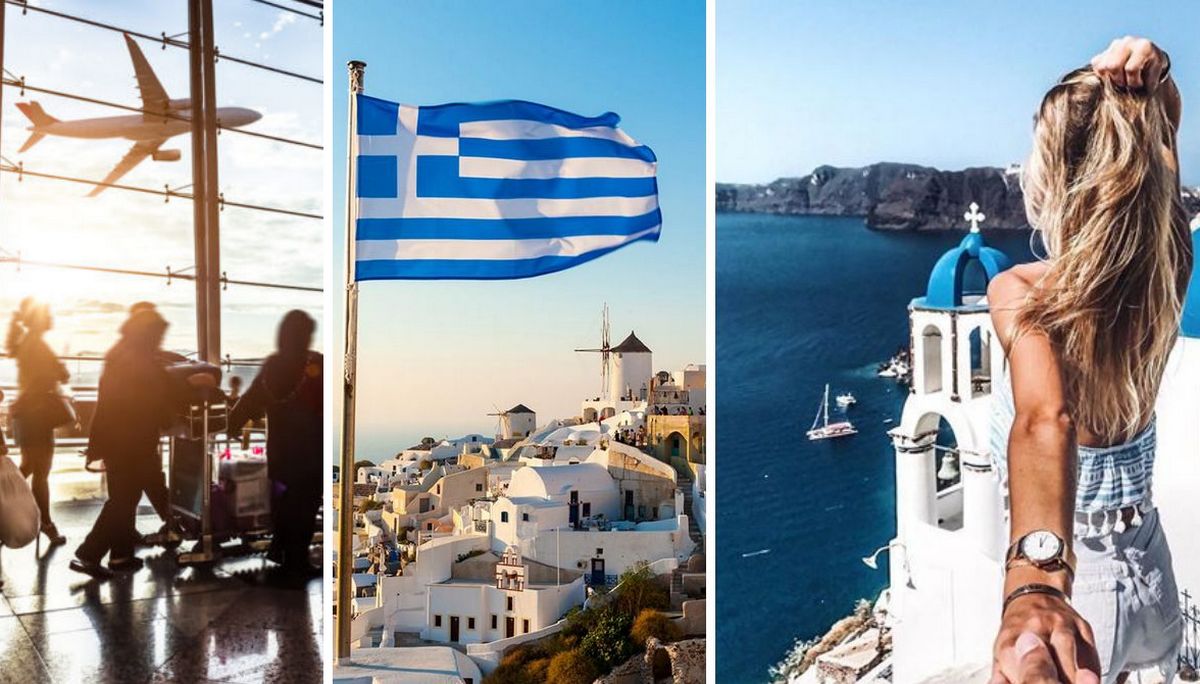Greece, whose post-pandemic economic recovery is largely driven by tourism, is approaching a breaking point. With tourism contributing roughly 20% of the national GDP, the country is now openly acknowledging that its infrastructure can no longer cope with the ever-growing influx of visitors.
Infrastructure Under Extreme Pressure
According to a recent report by the Bank of Greece, many regions have reached — or are close to reaching — their maximum capacity in terms of road networks, ports, water supply, energy systems and waste management.
The situation is especially critical on islands, where tourist density far exceeds the local population.
-
Santorini welcomes around 3.5 million tourists a year — nearly 200 times its population.
-
On Mykonos, the ratio is even higher: tourists outnumber locals 300 to 1.
Despite this constant pressure, investment in island infrastructure has remained largely unchanged for the past two decades and is comparable to funding allocated to mainland regions. Many ports date back to the 1960s and no longer meet modern standards. Recent earthquakes on Santorini exposed a severe shortage of emergency evacuation ports.
Environmental Fallout: EU Fines Have Surpassed €149 Million
Overtourism has led to severe environmental consequences:
-
On Zakynthos, an illegal landfill has accumulated 530,000 tonnes of waste.
-
The European Court fined Greece €5.5 million, plus €12,500 per day until the issue is resolved.
-
In summer 2023, Mykonos experienced major sewage overflows.
-
Since 2014, Greece has paid more than €149 million in environmental penalties.
Tourist Taxes Are Rising, but Islands Receive Only a Third
In 2024, the government introduced several new levies — including a climate tax and port fees — generating €420 million in additional revenue.
However, only one-third of these funds reaches local authorities.
The rest remains in the central budget, limiting the ability of islands to improve their infrastructure.
The Bank of Greece recommends allocating all tourism-related revenue directly to local development projects, following the model used in the Balearic and Seychelles islands.
Greece Needs €35 Billion in Investments
Analysts estimate that:
-
Greece will require €35 billion in infrastructure investments by 2035,
-
while the current annual investment level is only €2 billion.
Proposed solutions include:
-
encouraging private sector investment;
-
more efficient use of EU funds;
-
creating a special authority dedicated to island infrastructure management;
-
shifting towards high-value, sustainable tourism instead of mass tourism.
Sustainable Tourism: Focus on Quality, Not Quantity
Experts stress that Greece has reached — and in some regions exceeded — its capacity limits. To achieve long-term sustainability, the country must pivot toward:
-
attracting higher-spending visitors,
-
extending the tourist season beyond the summer peak,
-
distributing arrivals more evenly throughout the year,
-
promoting lesser-known mainland destinations.
If the recommended investment strategy is implemented, tourism revenue could increase by up to 45% by 2035, adding around €5 billion annually to the economy.
DIP Overview: Where Overtourism Is a Global Problem
Greece is not alone. Overtourism is disrupting many destinations around the world. DIP highlights some of the most affected locations:
-
Venice, Italy — entrance fee for day-trippers, cruise ship restrictions.
-
Barcelona, Spain — protests, limits on new hotels, strict controls on short-term rentals.
-
Amsterdam, Netherlands — curbs on tourist shops, Airbnb restrictions, campaigns promoting alternative destinations.
-
Balearic Islands, Spain — tourist tax funds environmental and sustainability projects.
-
Santorini, Greece — caps on cruise ship arrivals.
-
Dubrovnik, Croatia — daily visitor quotas for the Old Town.
-
Thailand — temporary closures of beaches and islands to restore ecosystems.

